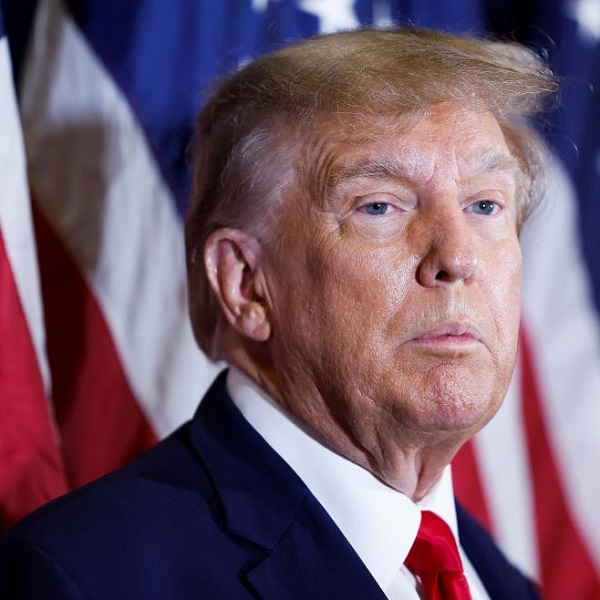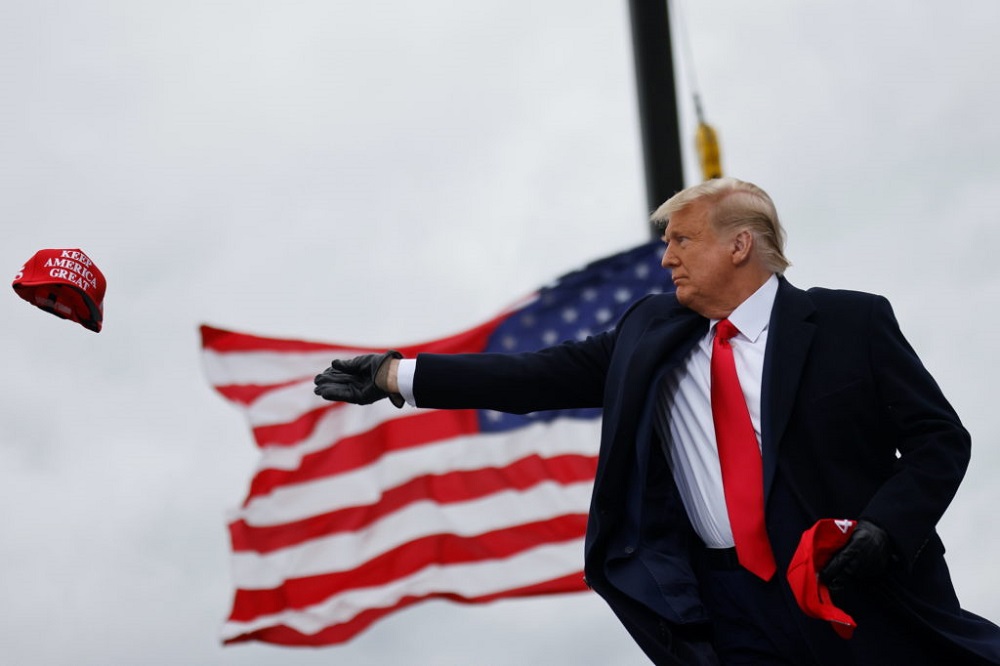Recent years have witnessed an increased use of the term “trumpold” in discussions regarding politics, media, and public discourse. But what exactly is meant by it? Basically, “trumpold” refers to an individual characterized by their bold behavior or rhetoric, which often involves disregarding traditional norms or inciting conflict and controversy.

Origins of “trumpold”
The term “trumpold” originates with former U.S. President Donald Trump, whose unconventional style of governance and communication epitomized many elements of this phenomenon. But “trumpold” doesn’t just apply to Trump himself; rather, its application encompasses wider implications for society’s norms and behaviors.
Impact of “Trumpold” on Society
The rise of Trump has had far-reaching ramifications on all aspects of society, creating profound ripple effects throughout various sectors.
Political Landscape
Politicians who adopt “trumpold” tactics often prioritise sensationalism and polarisation over consensus-building and diplomacy when adopting these methods of government.
Cultural Shifts
Trump has had an immense effect on cultural trends and public opinion regarding issues like immigration, race relations and social justice. Furthermore, its highly divisive rhetoric has fostered division among communities.
Media Dynamics
Within media, “trumpold” discourse has transformed how news is consumed and disseminated, often giving way to sensationalism over analysis, leading to misinformation spreading rapidly and undermining trust between audiences and media institutions.
Public Discourse
“Trumpold” rhetoric has also permeated public discourse, creating an atmosphere in which incivility and hostility have become normalized, with negative ramifications for democratic values such as tolerance, respect, and empathy.
Key Characteristics of “Trumpold”
Many distinguish “trumpold” behaviour or rhetoric from more conventional forms of communication.
Brazenness
At the core of Trumpold’s lies an unabashed disregard for social norms and conventions, often prioritizing shock value over reasoned debate or dialogue. Adherents to this approach typically place greater value on shock value and attention-grabbing tactics than reasoned discussion or dialogue.
Controversy
Donald Trump relishes in stirring up turmoil, intentionally courting outrage from both supporters and opponents alike to generate headlines and control the narrative. This strategy often serves to dominate news cycles and drive coverage forward.
Simplification
One characteristic of “trumpold” rhetoric is its tendency to oversimplify complex issues, reducing them to stark divides between “us” and “them.” This black-and-white framing appeals more strongly to emotions than intellect.
Unpredictability
“Trumpold” is known for its unpredictability, with followers often engaging in unexpected or eccentric behaviors that keep audiences on edge. This unpredictable aspect is both disorienting and captivating for audiences, keeping them alert while at the same time being disconcerting and thrilling!
Historical Context
While “trumpold” may seem to be an up-and-coming phenomenon, its historical roots provide insight into its lasting appeal.
Historical Parallels
Throughout history, charismatic leaders and demagogues have employed tactics resembling “Trumpold” to consolidate power and garner support, from populist movements to authoritarian regimes. Using such strategies has not been unique to today.
Modern Comparisons
Over the years, figures such as Silvio Berlusconi, Boris Johnson and Jair Bolsonaro have often been compared to Trump for their controversial or “trumpish” natures. Each has significantly reshaped political dialogue in their respective countries while leaving an indelible mark on society.
Media Representation of “Trumpold”
Media coverage plays an integral part in shaping perceptions about “Trumpold” behavior and its results.
Sensationalism
Media coverage of “trumpold” tends to focus on sensationalism and spectacle, amplifying its most contentious aspects while downplaying any potential causes or implications of the phenomenon.
Bias and Polarization
Additionally, media outlets frequently display bias when depicting Donald Trump, with partisan divides exacerbating existing divisions within society and creating the echo chamber effect, where individuals seek information that confirms their preexisting beliefs.
Fact-Checking
In spite of these challenges, fact-checking initiatives have emerged to combat misinformation and hold “trumpold” figures accountable for their statements and actions. Unfortunately, such efforts remain ineffective in an age marked by widespread distrust in media and institutions.
Public Perception and Response
The response of society at large to “trumpold” behaviour varies, reflecting its diverse perspectives and values.
Support and Admiration
Support and Admiration For many, “trumpold” politics offers a breath of fresh air by challenging political correctness and giving voice to marginalised perspectives. Supporters praise unapologetic leaders of this movement as heroes for change.
Critiques and Opponents
Conversely, “trumpold” has attracted harsh opposition from those who see it as an unsafe departure from democratic norms and principles. Opponents believe its rhetoric fuels division and undermines civil society foundations.
Societal Dividing
Has Been Revealed Donald Trump’s campaign has exposed deep divisions within society, pitting those calling for radical change against those advocating status quo. Bridging these divides will require dialogue, empathy, and the ability to face uncomfortable truths.
Psychological Analysis
A thorough understanding of “trumpold” is vital to comprehending its allure and impact on individuals as well as society at large.
Narcissism
Many scholars have linked “trumpold” behaviour with traits associated with narcissistic personality disorder, such as grandiosity, entitlement, and an apparent lack of empathy. Leaders displaying “trumpold” tendencies may put personal gain ahead of serving the common good.
Authoritarianism
“Trumpold” leaders often display authoritarian tendencies, seeking to consolidate power by inciting intimidation or coercion against dissidents and silencing any voices of dissent that arise within society. Such actions undermine democratic institutions and undermine the rule of law.
Cognitive Biases
Additionally, cognitive biases like confirmation bias and selective exposure play an integral part in maintaining “trumpold” rhetoric as people gravitate toward information that reinforces their existing beliefs and values.
Ethical Considerations
The rise of “Trumpold” poses significant ethical concerns to society, necessitating an in-depth evaluation of its implications for democratic governance and social cohesion.
Truth and Integrity
At the core of ethical debate around “Trumpold” lies an issue of truth and integrity in public discourse. Leaders who engage in deception or falsification threaten public trust in government as well as undermine democracy’s foundations.
Respect and Civility
Additionally, erosions of respect and civility in political discourse has ethical repercussions for democratic institutions. “Trumpold” rhetoric often relies on personal attacks and ad hominem arguments, dehumanizing opponents while fomenting animosity towards them.
Accountability and Transparency
Ensuring accountability and transparency within government is vital in order to protect against abuses of power and corruption. Leaders with authoritarian tendencies can undermine oversight mechanisms that promote accountability, potentially undermining democratic norms in the process.
Dealing with “trumpold”
Confronting the challenges posed by Trump requires taking a holistic approach that includes political, social, and cultural dimensions.
Education and Media Literacy
Fostering critical thinking and media literacy is essential to helping individuals recognise truth from fiction, resist manipulation by “trumpold” leaders, and understand misinformation spread online. Educational initiatives geared toward teaching digital literacy skills may assist in mitigating its spread.
Civil Engagement
Civic participation is vital to upholding democratic values and holding “trumpold” leaders accountable. From voting in elections to participating in grassroots activism, citizens play an integral part in shaping their communities for generations to come.
Coalition Building
Coalition building across ideological lines is essential to creating dialogue and understanding across societies. By finding commonality on shared values and objectives, various stakeholders can work together towards finding solutions to “trumpold.”
Cultural Effect
Trumpoldetend The cultural ramifications of “Trumpold” extend far beyond politics, shaping social norms and values in profound ways.
Normalization of Incivility
One troubling consequence of “trumpold” rhetoric is its normalization of incivility and hostility in public discourse. Verbal attacks and personal insults have become prevalent, undermining fundamental principles of respect and civility.
Erosion of Trust
Furthermore, trust issues between institutions and authority figures has contributed to social cohesion issues and feelings of alienation among segments of the population. Rebuilding it will require concerted efforts that address systemic inequalities and injustices that undermine it.
Resilience and Resistance
Communities have demonstrated impressive resilience and resistance against “Trumpold” rhetoric, including grassroots movements and civil society organizations that provide crucial advocacy support. Their role includes amplifying marginalized voices while advocating for positive change.
Future Outlook
While its future presence and effects remain uncertain, certain trends warrant continued attention.
Political Polarization
Persistent partisan polarization will likely perpetuate conditions favorable for “trumpold” behavior as partisan divisions deepen and extremism becomes increasingly normalized.
Technological Disruption
Technological advancements such as social media and artificial intelligence will continue to alter the media landscape, altering how certain rhetoric spreads and receives acceptance by audiences.
Societal Resilience
However, societal resilience and resistance provide hope for the future as individuals and communities work together to uphold democratic values and advance social justice.
Conclusion
“Trumpold” represents an intricate phenomenon with far-reaching implications for society. From its roots in political rhetoric to its cultural impact on public discourse, “trumpold” challenges conventional norms and values while forcing us to face uncomfortable truths about power, truth, and democracy. By understanding the psychology behind “Trumpold” as well as its ethical considerations, we can work towards creating an inclusive and equitable future.





